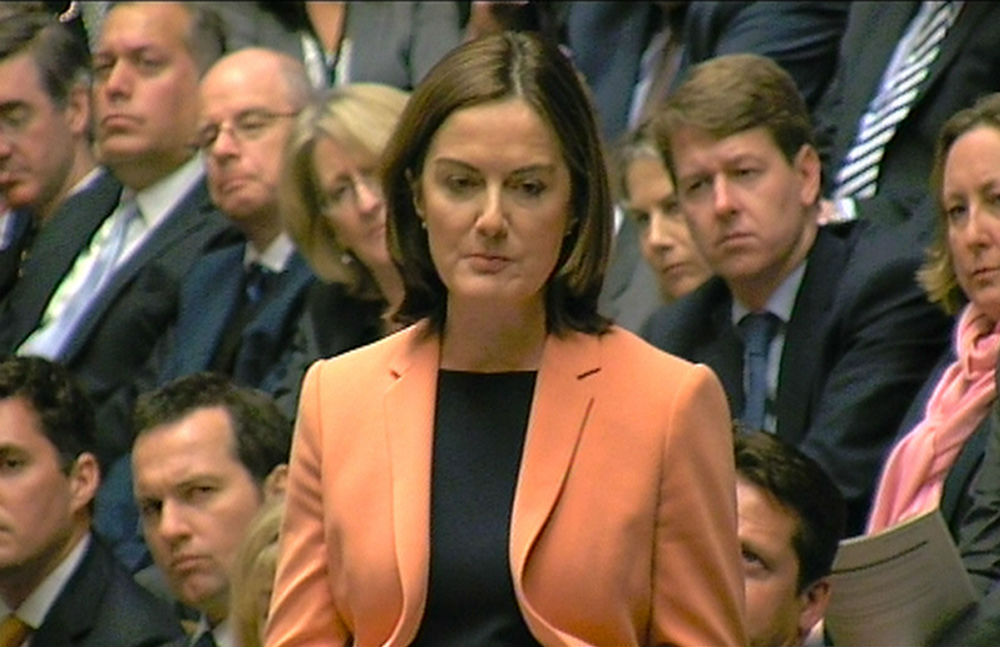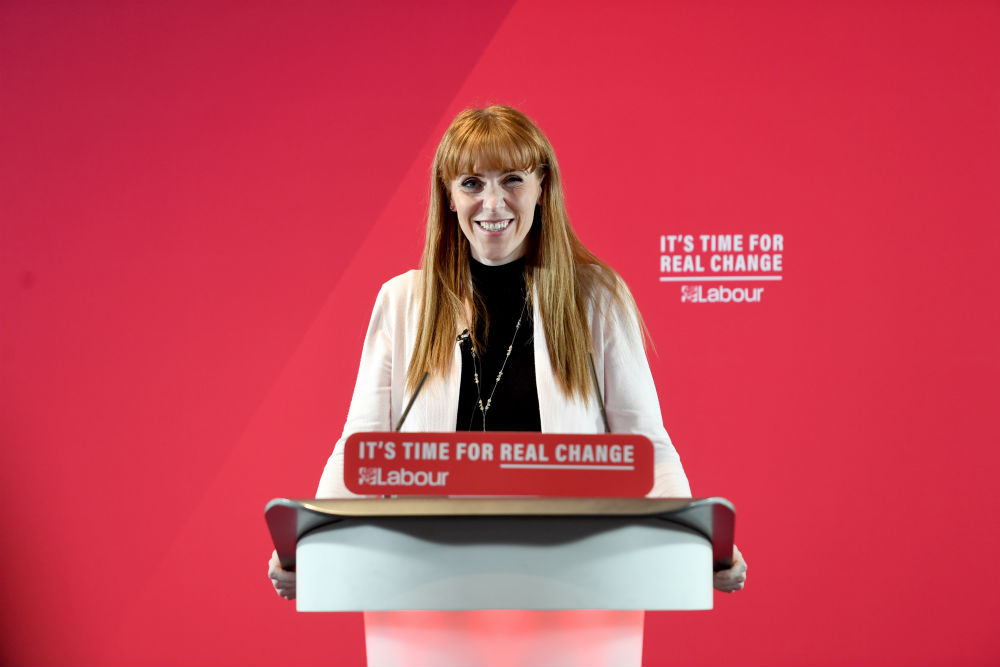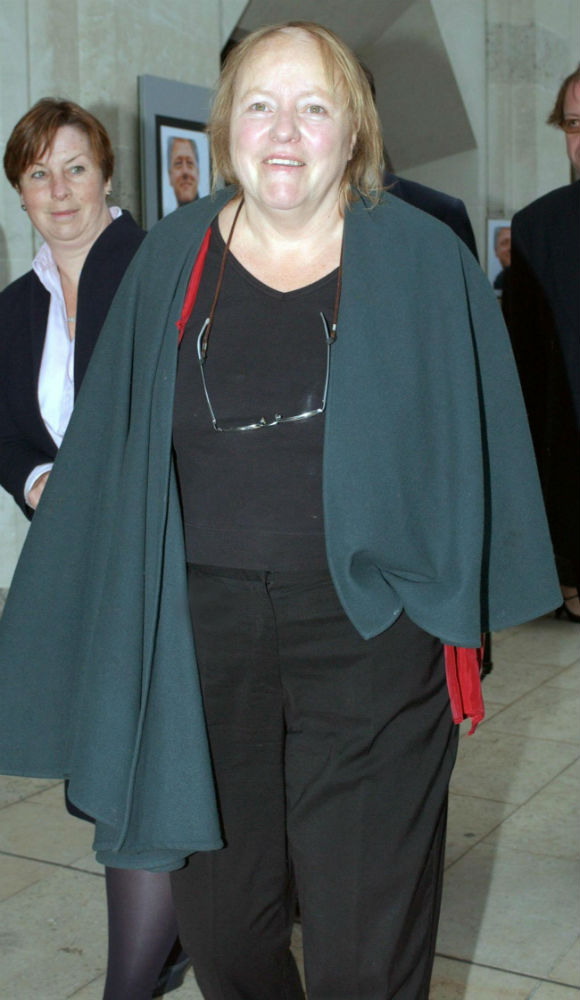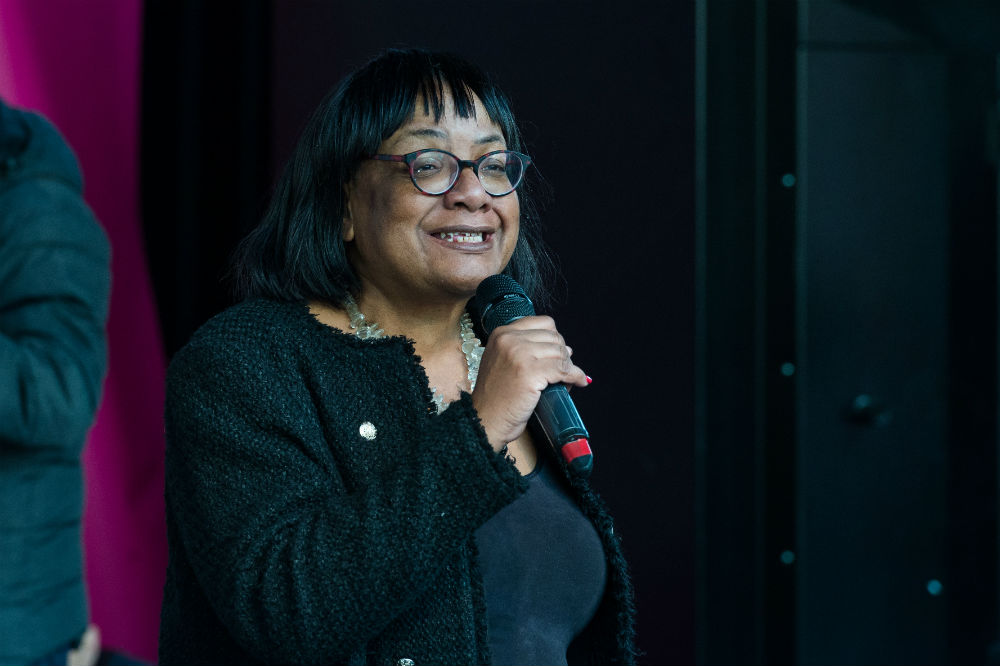Feature written by Sophie Crabtree, who you can follow on Twitter @CrabSophie
Politics has for many years been a male-dominated area, but that doesn't mean there aren't a whole host of incredible women paving the way for future generations, taking part in debates and changing the landscape of Britain as part of the UK government and opposition.
Ahead of the General Election 2019 (December 12th - make sure you're registered to vote!), we're taking a look at seven of the most impressive women in politics...
Baroness Sayeeda Warsi - Conservative
Born in Dewsbury, Warsi became the first Muslim in Cabinet in 2007. Her work on subverting the stereotypes of their culture was high on her agenda, doing huge work on dismantling Islamophobia with Mr Anas Sawar (MSP for Glasgow Labour). Together they wrote the first literature on Media Guidelines on the Reporting of Muslims and Islam, then made it their mission to educate the people with it. Warsi champions the hashtags #IslamophobiaDefined, and #AFightForAllOfUs.
She takes stances against the most prolific politicians – most recently accusing her colleague Matt Hancock (Conservative Health Secretary) of ‘whitesplaining’ her views, on the treatment of her people, on the BBC4 Today radio show. Warsi responded in turn with: "I’m so glad I have colleagues like you who can educate me after my 30 years of experience of work in Race relations".
She also called out the decision made by Prime Minister Boris Johnson to postpone the Islamophobia enquiry promised before Christmas 2019, saying it was "predictable", that "[the Conservative Party] are only anti-racist to score political points. Do as we say not as we do."
She climbed the rigging and transitioned from MP to Conservative Chairman (2010-12), to Foreign Minister (2012-14) and was finally given a seat in the House of Lords (to present) as part of the Sexual Violence in Conflict committee.
Lily Madigan - Labour
In 2018 Madigan made headlines with her declaration that she wished to become Labour’s first transgender MP. At 20, she’s a former Women’s Officer and is an emphatic activist for LGBTQ+ rights, after her experience with bitterness and abuse in response to her ambition. Her appointment highlights the battle between gender being a matter of their biological sex, and their own decision.
She also carries the torch for the Jo Cox Foundation initiative #moreincommon to diversify the female talent seen in the Party, the empowerment from which is hoped to then be reflected onto the people. Cox, the MP for Batley and Spen. and former aid worker, was murdered for her endorsement of creating an inclusive constituency, and the Foundation set up in her name gathers those who echo this message in defiance of the terrorism many groups face.
Lucy Allan - Conservative

Allan has been a Conservative MP since 2015, but her past has allowed her to work quickly and productively in a short time. Therefore, she has myriad of commitments to her name – passionate about improving the livelihoods of the people of small towns.
Lucy was a local Councillor from 2006 to 2012 when she was involved in a range of community and voluntary work, including women’s refuge charity, Wandsworth Women’s Aid, Fostering and Adoption Panels, a Pupil Referral Unit.
Her Masters in Employment Law is now used in her involvement in the Women and Equalities Committee. She also speaks on Social Mobility, Access to Leading Professions, the Care System, Child Sexual Exploitation, and Young People’s Mental Health.
Angela Rayner - Labour

Rayner is always candid about the fact that she feels she was failed by the public education system when she left with no qualifications. She criticises OFSTED for measuring "poverty" and "deprivation"; "it doesn’t measure excellence", she told the Guardian. Now the Shadow Education Secretary of the Labour cabinet, she wants to rescale the system to better support the working-classes to reach positions of power like her: she intends for inspections to arise from "genuine need" to improve rather than spot-checking and box-ticking, following her commitments to halt expanding academies.
Jess Phillips - Labour

Phillips wields the line, "if you cut me I bleed Birmingham" as her motivator in politics; she wants to reverse the apathy felt by the public towards politics, citing her own grief displacement as the reason why she first became politically-charged.
She doesn’t care to mince her words: in 2015 she famously laughed in during a debate slot, allocated for a women and equalities discussion, when Phillip Davies asked whether there should be an International Men’s Day. Sitting on the backbench she declared that from, quite literally, where she was sitting, "every day" was that day. Whether to support or refute her comments, social media erupted, as it so often does for the self-proclaimed Brummie lass.
Mo Mowlam - Labour

Mowlam died aged only 55, but not before she left behind the legacy of her tremendous work for Irish peace. Through years of dedication she left a reputation of humility and humour, working with both sides of the civil conflict, and inspiring other politicians to join her (such as directly asking a young Jeremy Corbyn to help). In the end, she masterminded the Good Friday Agreement that was signed in 1998 and made history.
Diane Abbott - Labour

Abbott came from a working-class Jamaican family and has always pushed for difficult topics to be discussed. For example, she was fully supportive of pro-choice rights, she was one of the leaders of the NC30 Amendment of the Abortion Act 1967: Application to Northern Ireland.
She defended those caught up in the Windrush Scandal and demanded action: she wrote to Sajid Javid (Home Secretary at the time) warning that "warm words" were simply "not enough" for the Home Office, that the damage done for public relations as an unknown number of people lost their jobs or homes, or were denied benefits or medical care. She urged him to start making amends by publishing the figures of broken promises to the people of the Windrush generation (the first of who were West Indian Migrants arrived in the UK around 1948).
With all this time on the inside, Abbott has been a beacon for highlighting the historic abuse suffered by female MPs from social media. In 2017 she wrote an article for the Guardian detailing the daily threats she received, including the likes of rape. The Amnesty International report that followed found that in the 2017 election campaign, Abbott was the subject of almost half of all abusive tweets about female MPs on Twitter, receiving 10 times more than any other MP.
At one of the 2019 Prime Minister’s Questions, Abbott became the first black person to represent her Party, and she addressed the lack of support for women provided by the government: "Whether it’s women members in this house, women claiming benefits, women’s reproductive rights in Northern Ireland and the failure to support women workers at Thomas Cook, isn’t this a government letting women down?"

